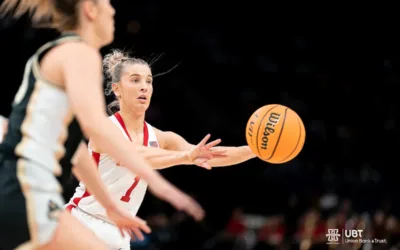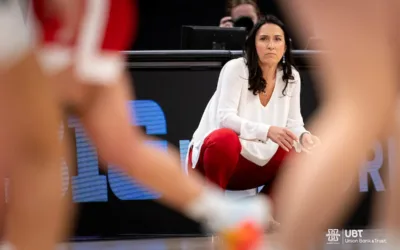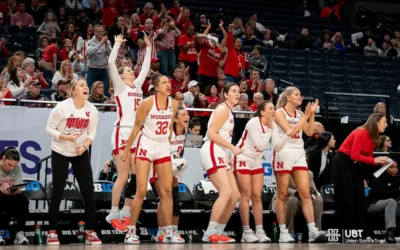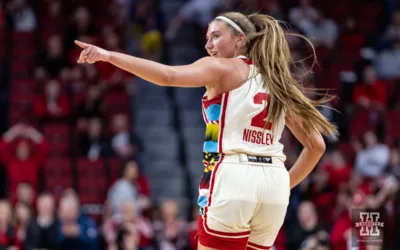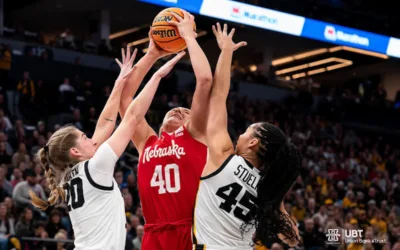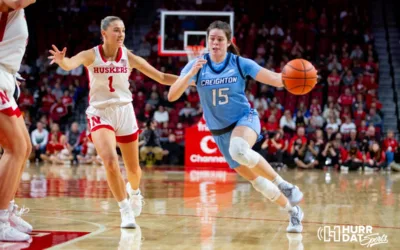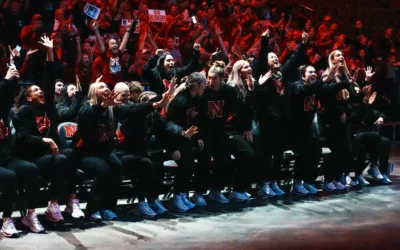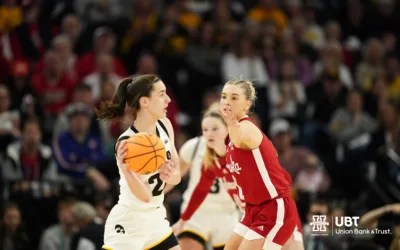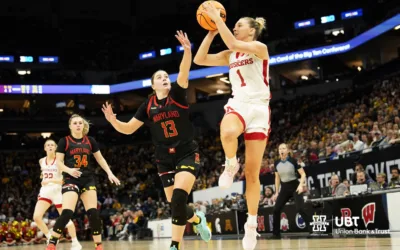Nebraska Women’s Basketball’s Season Ends With Round of 32 Loss to Oregon State
Nebraska women's basketball's season came to an end on Sunday, as the Huskers lost to Oregon State in the second round of the NCAA Tournament. No. 3 seed Oregon State played shutdown defense in a sold-out home game, with the Huskers being held to 37 points...
Oregon State, Raegan Beers Stand in Way of Nebraska’s Sweet 16 Hopes
Nebraska women’s basketball has accomplished some difficult things already this postseason. First of all, the Huskers won a game in the NCAA Tournament, something the program hadn’t done in a decade. Even as a No. 6 seed, that’s a challenge. Louisville was upset by...
Nebraska Women’s Basketball Survives Texas A&M Comeback, Advancing in NCAA Tournament
Nebraska women’s basketball earned its first NCAA Tournament win since 2014 on Friday, holding off Texas A&M late for a 61-59 victory.
Logan Nissley Battles Through Injury in Earning Key Role For Huskers as Freshman
With the support of teammates and coaches, Logan Nissley has battled through foot injuries to become a Big Ten all-freshman team selection and key contributor for the Huskers.
Strong Rebounding Teams Meet in Nebraska Women’s Basketball’s Matchup Against Texas A&M
Nebraska women’s basketball’s challenge against Texas A&M in the NCAA Tournament starts in the frontcourt.
How Far Will In-State Women’s Basketball Teams Go in March Madness?
Both Nebraska and Creighton women’s basketball made it into the NCAA Tournament this season. The Bluejays make their third straight appearance, while the Huskers qualify for the second time in three years. Both have hopes of making some noise in the bracket. Here’s...
Nebraska Women’s Basketball Earns No. 6 Seed in NCAA Tournament, Will Face Texas A&M
Nebraska women’s basketball celebrated at Pinnacle Bank Arena on Sunday as its selection to the NCAA Tournament was made official.
The Huskers landed as a No. 6 seed, set to face off against Texas A&M.
Electric Big Ten Championship Game Ends With Nebraska Falling Short in Overtime
Nebraska women’s basketball battled with Iowa for four quarters and an overtime period in an electric Big Ten tournament title game, but Caitlin Clark and the Hawkeyes ended up winners of the tourney for the third year in a row.
Jaz Shelley Leads Nebraska to Big Ten Tournament Semifinal Win With 30-Point Showing
Jaz Shelley had a season-high 30 points in Nebraska’s Big Ten tournament semifinal game, leading the Huskers to a win over Maryland and setting up a championship matchup against Iowa.
